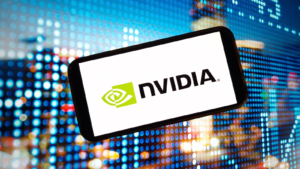Remarkably, quantum computers have the ability to perform optimization and predictive tasks faster than conventional computers. They do require a load of capital to build and maintain. So only a select few public companies in the market specialize in this field.
As U.S. equities remain rather volatile, it’s probably best to stay away from small-cap pure-play quantum computing stock. Why? Their ability to generate profits for shareholders is still up in the air. So, let’s examine larger tech companies that have made significant strides in developing quantum computers. And the icing on the cake is, Wall Street is optimistic about all of them.
Alphabet (GOOG, GOOGL)

Alphabet (NASDAQ:GOOG, NASDAQ:GOOGL) is the holding company for software giant and household name, Google. Having already written about Alphabet stock in the past, I’m still bullish on the company’s share price. It trades at a 21.9x forward earnings, which is lower than competitors Microsoft (NASDAQ:MSFT), Amazon (NASDAQ:AMZN) and Apple (NASDAQ:AAPL). But the tech giant has many tailwinds guiding its rise, including advanced computing technologies.
In fact, Google has been developing quantum computing technology for well over a decade now. Sycamore is the name of Google’s quantum computer gem. This quantum system has 70 qubits, which is higher than a prior version of the computer. Similar to normal bytes, qubits can be in a state of 0 or 1. However, they can be in these states simultaneously, endowing them with more processing power than a normal computer.
According to Koyfin, Google has 59 Wall Street analysts covering its shares, and 48 of them have given the stock a strong buy or buy rating.
Nvidia (NVDA)

Impressively, Nvidia (NASDAQ:NVDA) shares have soared well over 200% over the past 12 months.
The reason? The rise of generative artificial intelligence (AI). The chipmaker is the key provider of advanced chips that power large-language models for training AI chatbots. Nvidia’s state-of-the-art Blackwell chips will develop improved AI models for both businesses and consumers. In addition to its lead in AI processing power, Nvidia is paving the way for quantum computers.
Further, Nvidia has developed an open-source platform dubbed CUDA-Q. It allows quantum computing scientists to program and integrate quantum processing units (QPUs) with classical computing systems like GPUs and CPUs. The influence of Nvidia’s quantum computing platform goes beyond quantum computing systems in the U.S. In fact, national research centers in Germany, Japan and Poland are relying upon Nvidia’s open-source programming system to create their own quantum computers.
All in all, as AI takes the forefront of the NVDA stock discussion, investors should also consider the chipmaker’s foray into quantum computing.
International Business Machines (IBM)

International Business Machines (NYSE:IBM) is another legacy tech business that has dipped more than one toe in the quantum computing space.
IBM has been pursuing quantum computing research since the early 2000s. And the company’s desire to stay at the forefront of research in the field has not abated. Last year, IBM seemed to have extended its lead in quantum computing processors. The release of the Condor system took the market by storm. This quantum processor has 1,121 superconducting qubits, rendering it the largest quantum computing chip that has been developed.
However, not all the news is positive. IBM has suffered with sluggish growth over the past few years. The uncertainty in the macroeconomic environment certainly has not helped. Nevertheless, quantum computing could prove to be an important growth lever for the business. IBM trades at 17.0x forward earnings and has received a couple of strong buy ratings from Wall Street firms.
On the date of publication, Tyrik Torres did not have (either directly or indirectly) any positions in the securities mentioned in this article. The opinions expressed in this article are those of the writer, subject to the InvestorPlace.com Publishing Guidelines.
Tyrik Torres has been studying and participating in financial markets since he was in college, and he has particular passion for helping people understand complex systems. His areas of expertise are semiconductor and enterprise software equities. He has work experience in both investing (public and private markets) and investment banking.
